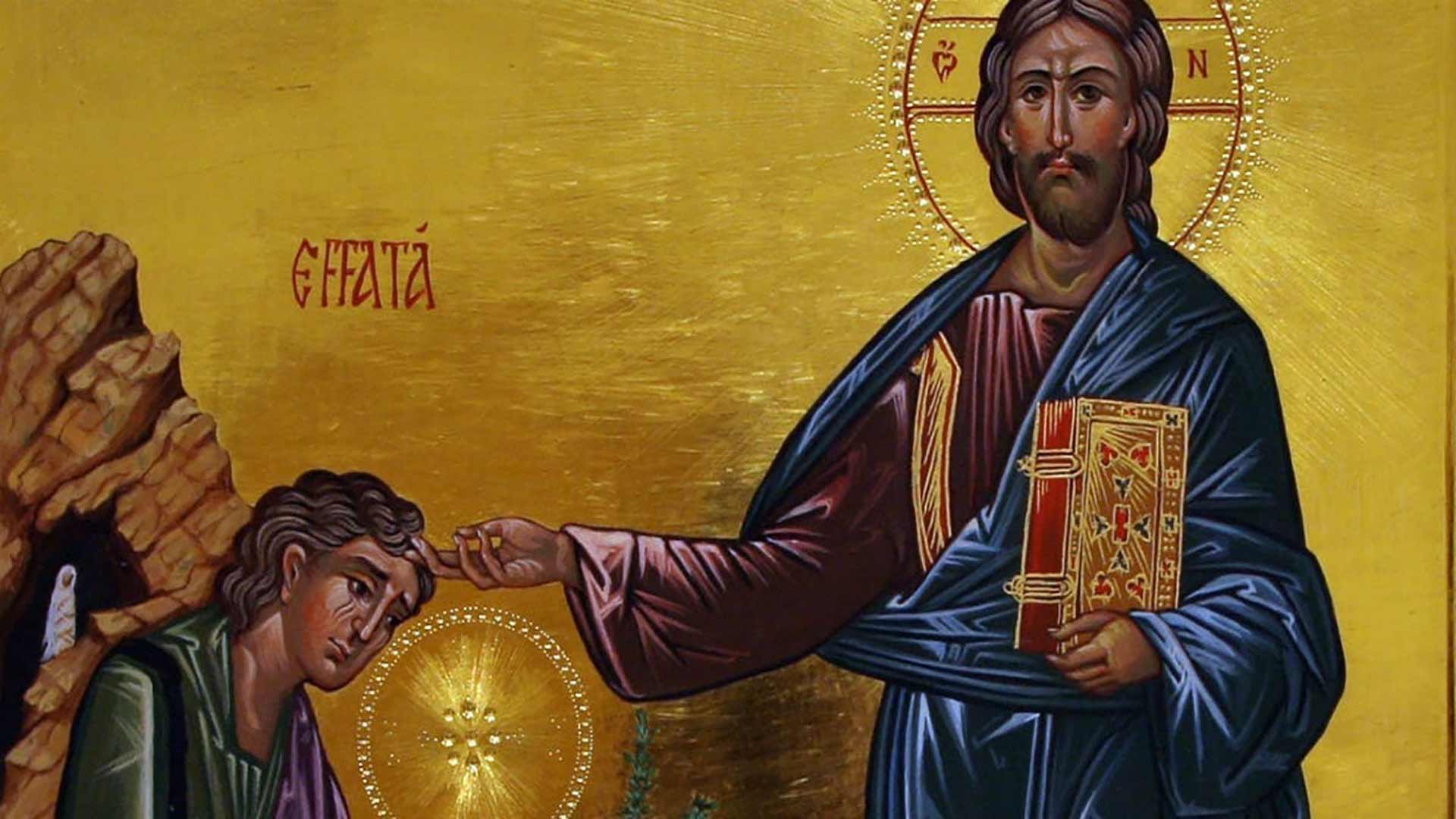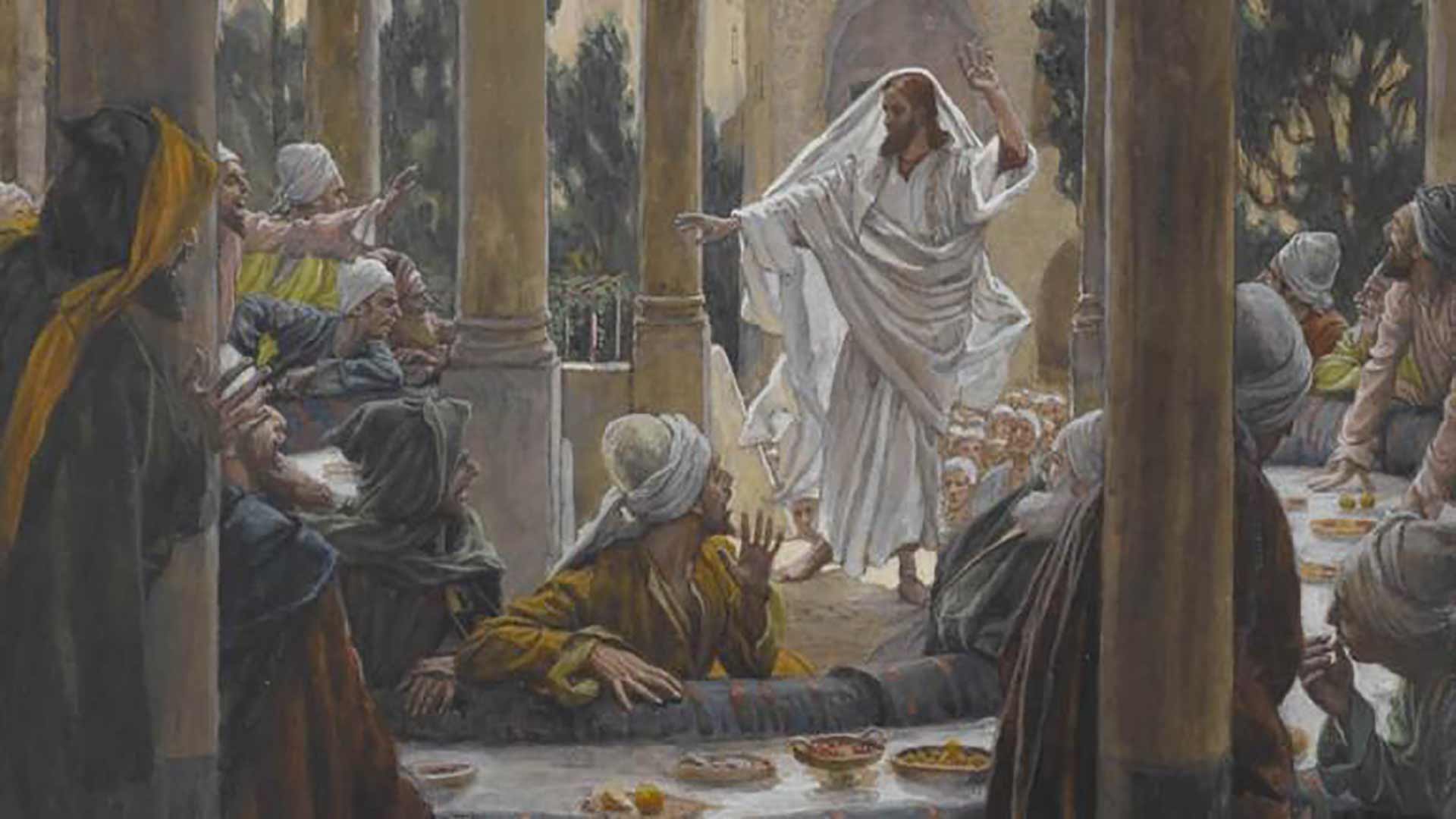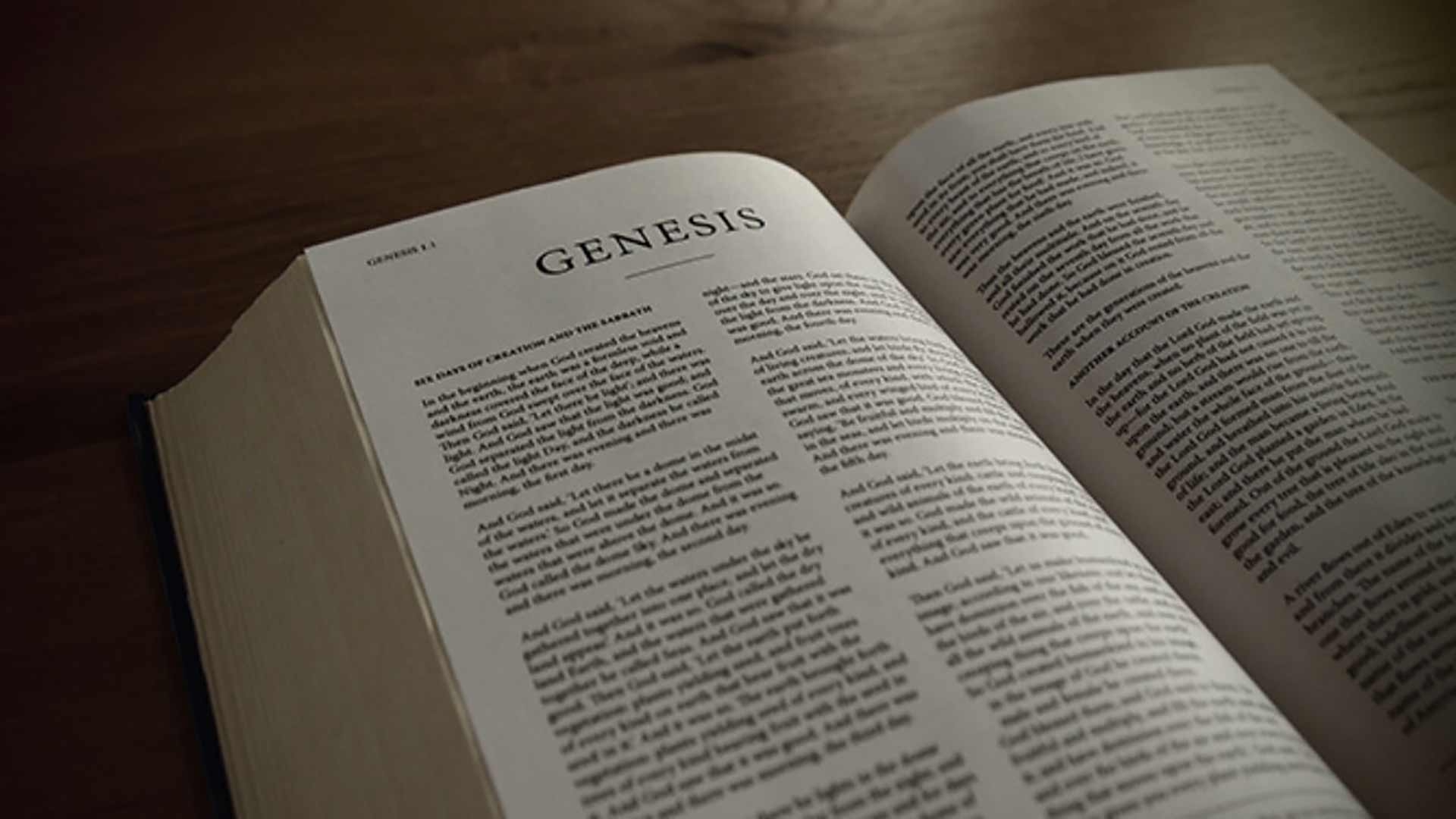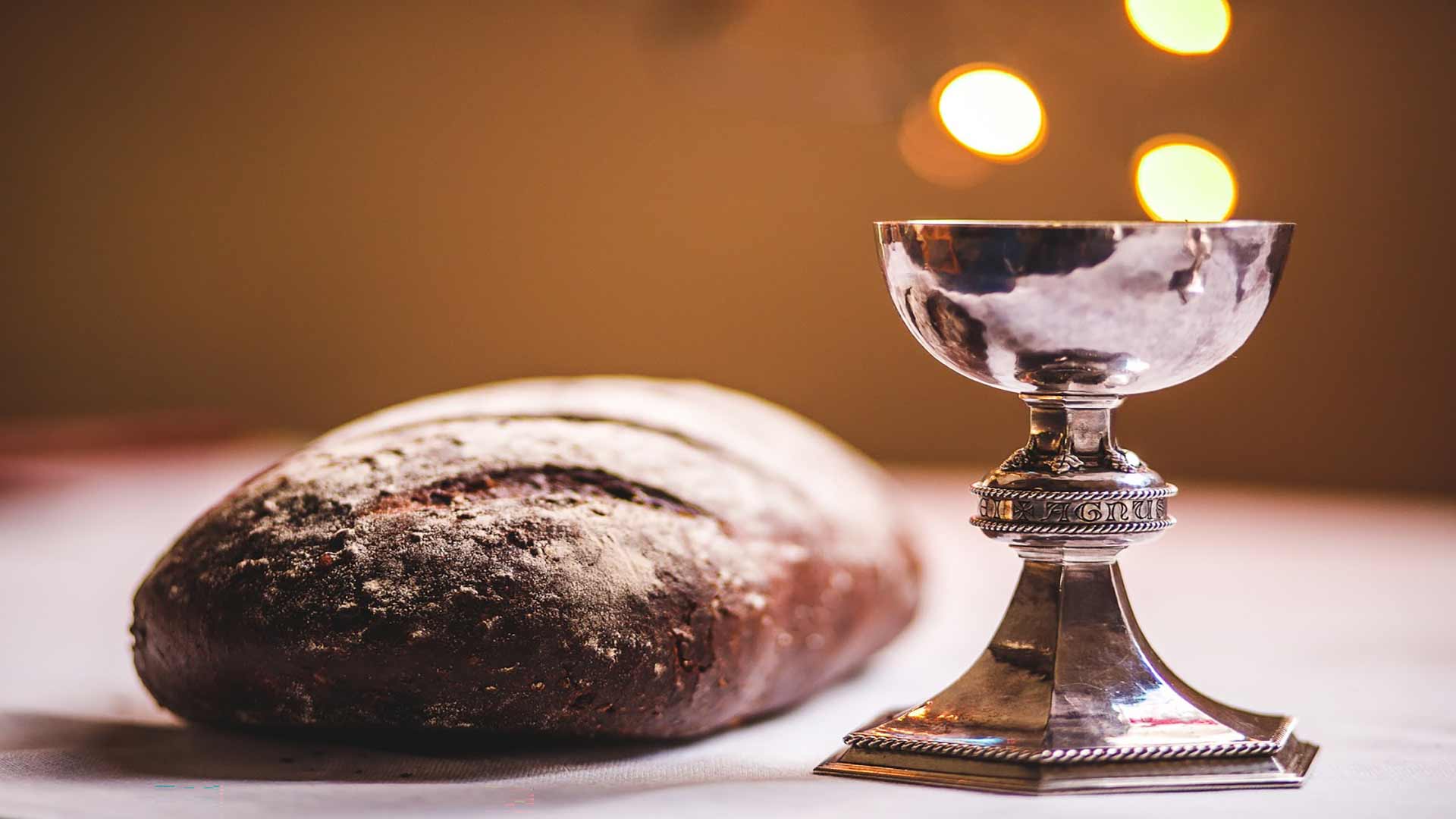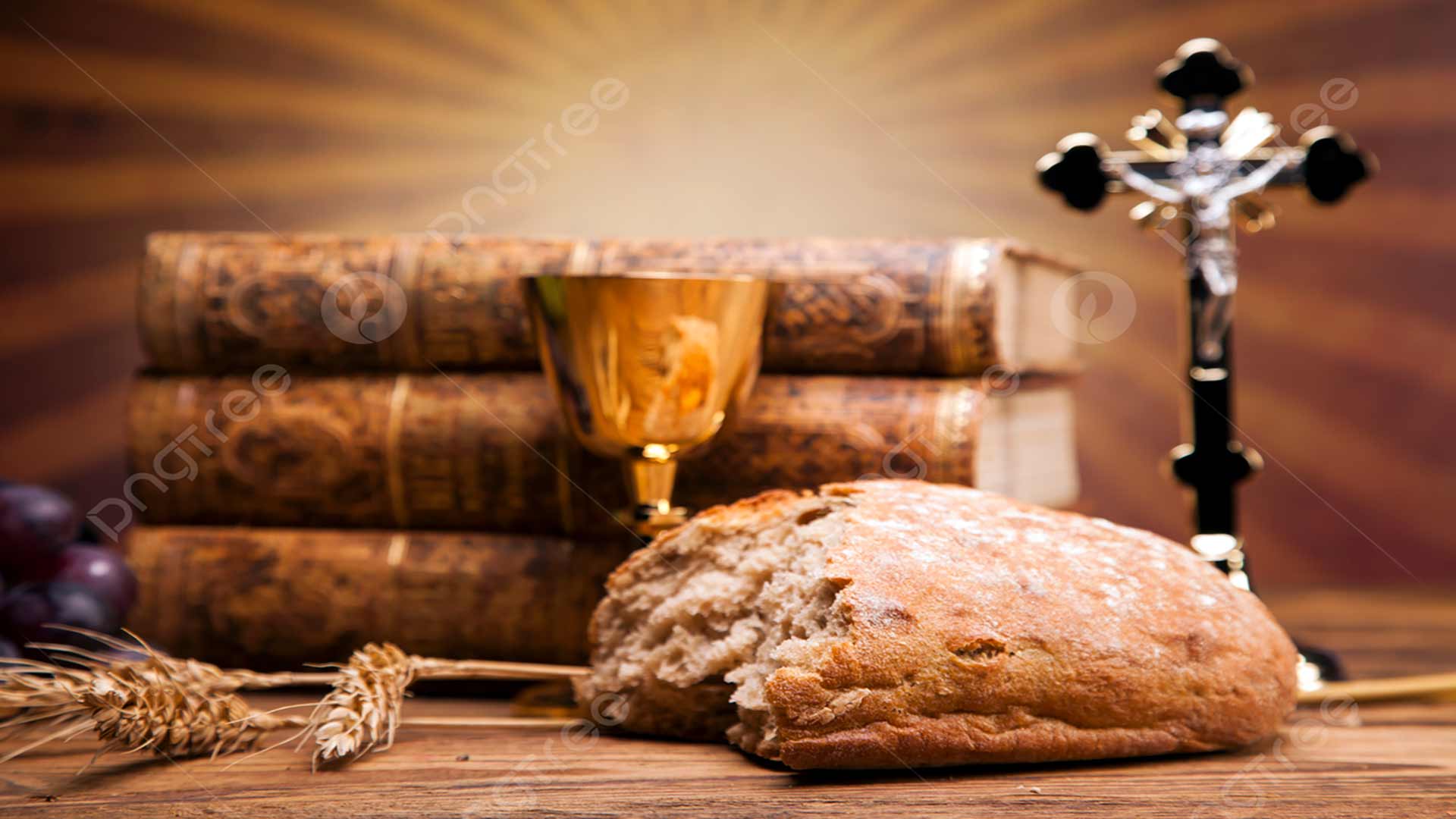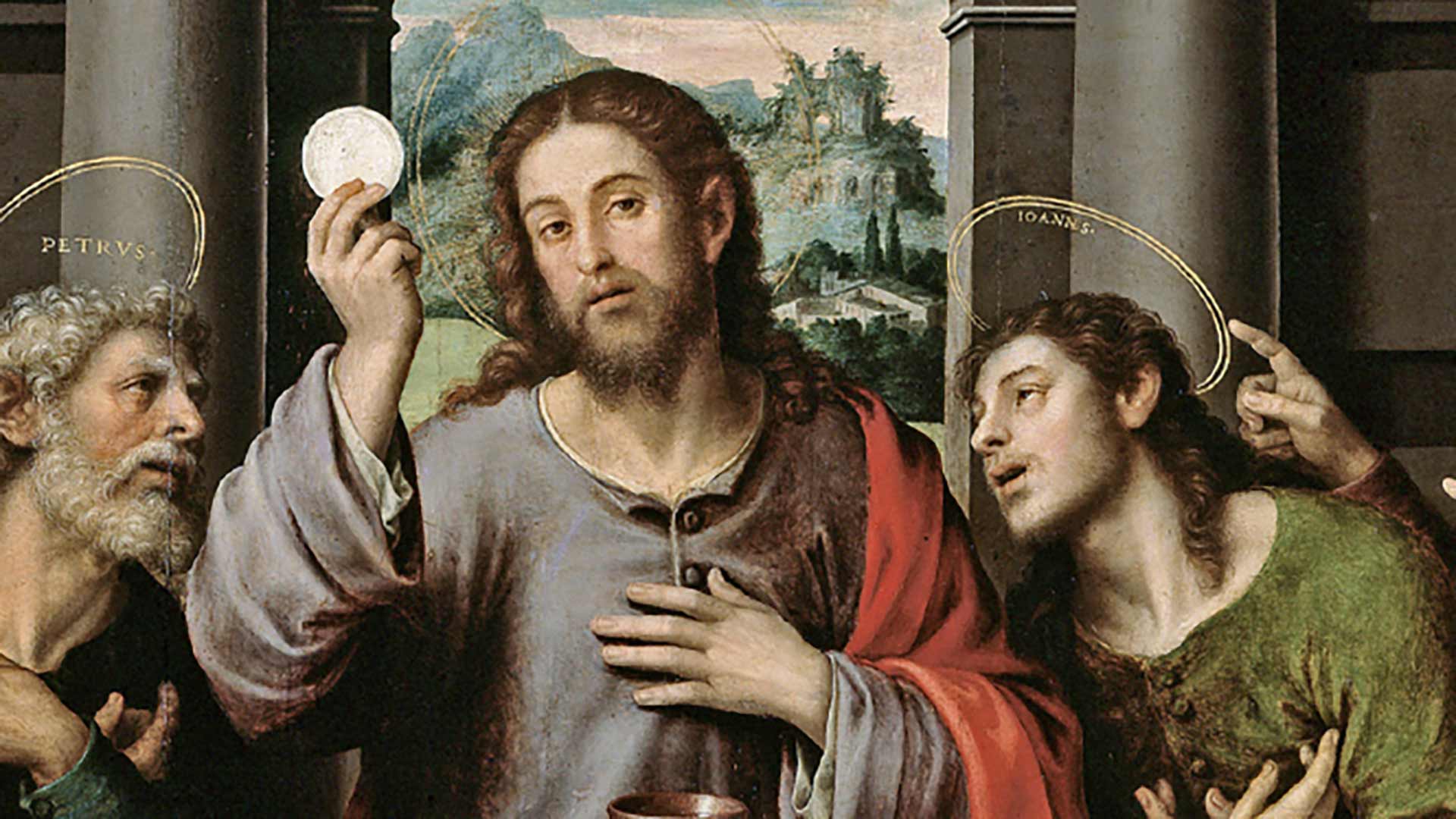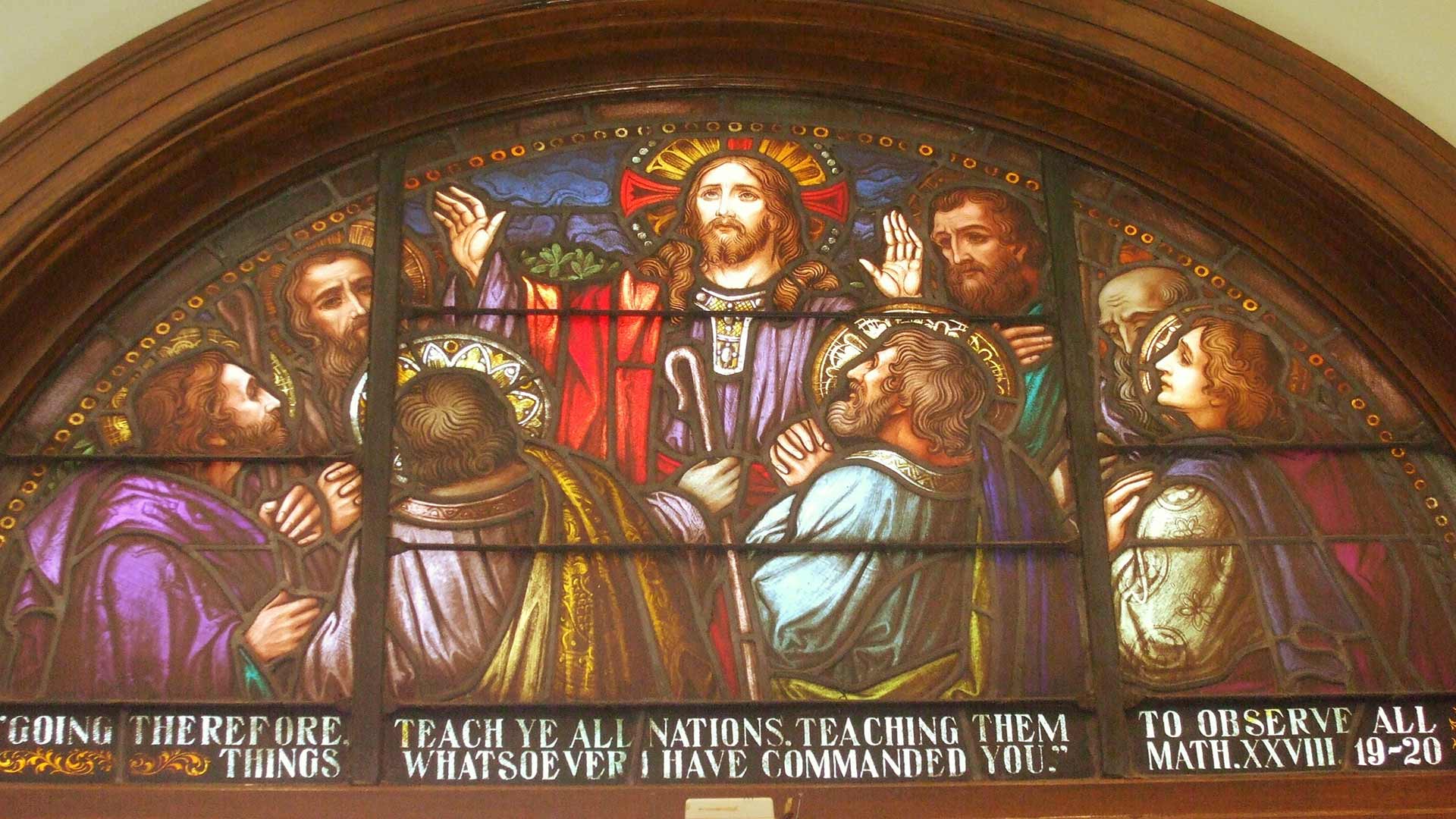Leap of Faith and Love
Last Sunday, a seventy-year-old shared with me some of her longstanding questions about religion and faith. She is presently beset with physical ailments, and finds it painful to turn them over in her mind. Hers has been quite a long journey, and fearing that it may end abruptly, she asks: ‘What does it take to be saved? Can I simply have faith in Jesus and be saved?’ While this is in itself a worthy act of surrender that will be pleasing to the Lord our God, there are a few nuances to be considered in this regard.
Quite remarkably, today’s Readings point exactly to what it takes to be saved. And this is no coincidence, for He who feeds the birds in the blue sky and the worms in the garden soil, always provides the answers we seek. And as I get down to writing this blogpost, I hear in the background this Merle Haggard song, which I dedicate to all who are on the journey of faith –
I come to the garden alone
While the dew is still on roses
And the voice I hear falling on my ear
The son of God discloses.
And he walks with me and he talks with me
And he tells me I am his own
And the joy we share as we tarry there
None other has ever known.
He speaks and the sound of his voice
Is so sweet, the birds hush their singing
And the melody that he gave to me
Within my heart is ringing.
Let us therefore remember that we are never alone; God is with us and speaks to us at all times, as he did to Isaiah of old. In fact, in the First Reading (Is 50: 5-9), the Prophet says, ‘The Lord has opened my ear, and I was not rebellious. I turned not backward… For the Lord God helps me; therefore, I have not been confounded; therefore, I have set my face like a flint, and I know that I shall not be put to shame; he who vindicates me is near.’
Indeed, whoever trusts in the Lord has nothing to fear. We may be surrounded by the snares of death and anticipate the anguish of the tomb; we may be in the throes of sorrow and distress, yet when we call on the Lord’s name, He will deliver us. He is gracious, compassionate; He protects the simple hearts and saves the helpless. The psalm antiphon therefore invites us to sing with confidence: ‘I will walk in the presence of the Lord in the land of the living.’ We are called to be ever conscious of and grateful for the Lord's presence in the humdrum of our lives; He knows and cares for our every need. No wonder the Psalmist is all praise for the Lord’s mercies.
Even so, often we are ungrateful, as the Jews were, to Jesus. He who had come down from Heaven and wrought signs or miracles, as expected, was rejected by His own. ‘Who do men say that I am?’ He asked. What is our answer to that question that Jesus asks in the Gospel today (Mk 8: 27-35)? Have we have built up a personal relationship with Jesus, as He journeys with us, quietly bearing all our burdens? Only Peter answered correctly – ‘You are the Christ’ – yet when the Master spoke of suffering and rejection and death on the Cross and of rising from the dead, Peter rebuked Him. And Jesus was quick to dub him ‘Satan’, whom he ordered to get behind Him.
This was the first time Jesus was presenting Himself as the Suffering Messiah. There was ample evidence that He was indeed the Son of God, whose horizon was none other than the heavenly kingdom. But the people did not quite understand; they wanted Jesus to care about their earthly kingdom and do away with the Roman subjugation of their nation. As a result, Jesus both disappointed the Jews and angered the Romans. He taught the disciples that the Son of Man would have to suffer many things – and so would those who wished to follow Him.
‘Whoever would save his life will lose it; and whoever loses his life for my sake and the Gospel’s will save it’ can easily be put down as one of the greatest of the Kingdom paradoxes. Here is how worldly logic does not align with God’s wisdom; here is also how our faith does not align with reason. Not that they are intrinsically antithetical. Faith and reason are compatible, and so are science and religion, because truth is but one. Sadly, it is our egos that upset the apple cart; while in faith, we put our hope and trust in God, in reason we seem to trust more in our own powers, and only belatedly realise our folly.
Is Faith alone, then, our salvation? St James in the Second Reading (2: 14-18) states: ‘Faith by itself, if it has not works, is dead.’ Indeed, the Church rejects the ‘faith alone’ proposition, meaning that intellectual faith cannot save us. One needs to cooperate with God’s grace. Rather, our hearts have to move too. And this stirring will ensure that all that we do is out of love: corporal works of mercy[1] and the spiritual works of mercy[2]. That is to say, our faith must be wrapped up in love (charity or supernatural love of God). That is the right leap to take, and the time is now!
[1] Feeding the hungry; giving water to the thirsty; clothing the naked; sheltering the homeless; visiting the sick; visiting the imprisoned, or ransoming the captive; burying the dead.
[2] Instructing the ignorant; counselling the doubtful; admonishing the sinners; bearing patiently those who wrong us; forgiving offences; comforting the afflicted; praying for the living and the dead.
Ephphatha… be opened!
Last Sunday, we saw how God expects us to give ourselves over to Him; today we see Him as a merciful Healer who gives Himself over to us. Truly liberating is this attitude of trust and give-and-take. It liberates us socially, psychologically, spiritually. It is refreshing, vivifying, life-giving. It makes us free in Christ.
Freedom and happiness are among the soul’s deepest yearnings. They were ours for free until the fall of our first parents. Then, God made several covenants with man, but they too failed to yield enduring results. Prophet after prophet cried out in the wilderness. So it was with Isaiah; in his ‘little apocalypse’ he dwells on God’s final judgement upon nations hostile to Israel (chapter 34) before he talks of the country’s final salvation (chapter 35).
Today’s First Reading (Is 35: 4–7) is filled with the blessing of salvation. It addresses our fearful hearts. ‘Be strong, fear not!’ says the Lord. So, fortitude is what we must summon up in the face of ostracism, persecution, infirmity, discouragement and disappointment. God promises to cure the blind, the deaf, the mute, the lame. He who is the undisputed Creator of the universe will also let waters break forth and cool the sands of the burning desert.
The good news is that God’s richly metaphorical language translates into very concrete things. We are those weaklings that need His support; the earth is that victim of human recklessness, and which He alone can restore to pristine glory. Miserable as we are every step of the way, we long for His fatherly care and support. He comes to our aid and vindicates us. The Psalmist (145: 6c-7, 8-9a, 9b-10) has it on record that ‘it is the Lord who keeps faith forever.’ And, of course, if God is for us, who can be against us? (Rom 8: 31)
That is what we see in today’s Gospel (Mk 7: 31-37). Our Lord travels through Tyre and Sidon, rich cities (and regions) on the eastern coast of the Mediterranean Sea, in modern-day Lebanon. He took that circuitous route to the Decapolis, a group of ten Greek city-states now located in Jordan, Israel and Syria. He left Galilee because of the fierce dislike that the Pharisees had for Him. He took advantage of his self-imposed exile to instruct His disciples and to announce the Good News to the Gentiles.
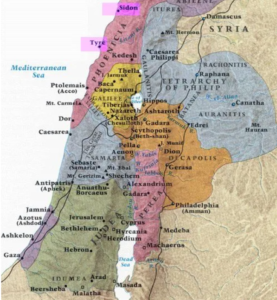
In some city of the Decapolis, Jesus was presented with a deaf-mute. They wanted Him to lay His hands on him. Taking him aside from the multitude, Jesus put His fingers into his ears; and with His saliva, He touched the man’s tongue. Then, looking up to heaven, Jesus sighed and said to him: ‘Ephphatha’, that is, ‘Be opened.’ Never mind if that sounds too emphatic to our ears, Our Lord’s gentleness sufficed. It may be noted that He looked up to His Father and very typically ‘charged them to tell no one’ what miracle they had witnessed.
Only St Mark recounts this episode. Scripture scholars say that, instead of merely signaling or uttering a word, Jesus made it a point to touch the ailing organs, as a sacramental sign. And why did He charge them not to tell anyone? This is that ‘Messianic secret’, stated by Matthew and Luke, too, but almost institutionalized by Mark! This Evangelist reports that Jesus forbade the devil from revealing his identity; those healed, from reporting the cure; and the disciples, from revealing to strangers what they had learnt from their Master.
Let us understand that those instructions were designed to rule out wrong notions about Jesus’ ministry. He did not wish to be seen as a political liberator but as a liberator of consciences. He moved the hearts and minds of people and touched the deepest recesses of their souls. He provided them with means to achieve spiritual serenity, not political peace. The cures he wrought were messianic signs, given in response to what the Jews had always expected from a long-awaited Messiah…. But ironically, they saw the signs but did not recognize the Messiah!
The Second Reading (Jam 2: 1-5) is taken from James. He is not to be mistaken for James the Great, brother of John the Evangelist and first apostle to be martyred; nor for the other, lesser apostle of the same name, son of Alpheus. The epistler James, a relative of Jesus and usually called ‘brother of the Lord’, was close to the Apostles but began to believe in Jesus’ divinity only after the Resurrection. He was chief of the Jewish Christian community of Jerusalem.
Finally, the Letter once written to ‘the twelve tribes of the Diaspora’ – more specifically, to the Judeo-Christian members of those diasporic tribes – enjoined them to treat the rich and the poor, the healthy and the sick, the educated and the uneducated with the same graciousness: all had to experience the love of God. The said Letter is now addressed to you and me, with an emphatic message – Ephphatha – a clarion call to open our minds and hearts to the Lord our God and, filled with gratitude for the many blessings and graces received, announce His Good News from the rooftops!
In letter and spirit
At the end of a week when Our Lord repeatedly rebuked the Scribes and Pharisees – ‘Woe to you, hypocrites’; ‘Woe to you, blind guides’, and so on – and then put before his disciples the delightful imagery of the Bridegroom who arrives at an hour we least expect, and the Master who, on seeing that a servant has squandered the talent, casts him into the outer darkness where men will weep and gnash their teeth; this Sunday we are warmly encouraged to conform to God’s law, which always turns to our moral and spiritual advantage.
But how will such a call be picked up by the contemporary world in which pride and individualism reign, where every one considers themselves to be the law, or above it? Of course, such thoughts seem to arise mostly where God’s law is concerned; human laws – even if illicit or immoral – are followed blindly. We fail to see that, while humans make laws to suit individuals, lobbies, or regimes, God’s laws are above board and apply to both prince and pauper. Yet, we find fault with these – for God is up there, silent, as though inexistent, whereas humans down here are vociferous and exacting...
The First Reading (Deut. 4: 1-2, 6-8) rails against such inversion of principles and values. It highlights the importance of lovingly obeying God’s commandments; keeping them does not make us blind but wise and understanding. None should tinker with the law, reinterpret it, and much less dare to twist it. The Lord is very clear: ‘You shall not add to the word which I command you.’ Integrity should be our watchword. We must seek to follow God’s law in letter and spirit, with sincerity of mind and heart.
The Gospel (Mk 7: 1-8, 14-15, 21-23) clinches it. The Pharisees and the Scribes object to the disciples eating with hands unwashed, foolishly believing they would catch Jesus on the wrong foot. But Our Lord comes down heavily on them, quoting Isaiah, whom the scholars ought to have known: ‘These people honour me with their lips, but their heart is far from me; in vain do they worship me, teaching as doctrines the precepts of men’. Jesus further charged them, saying: ‘You leave the commandment of God, and hold fast the tradition of men.’
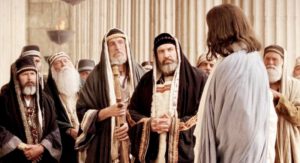
Obviously, Jesus had nothing against tradition as long it was in keeping with God’s law – and it did not become the law! In fact, only God and religion can be higher than tradition, which has the unique ability of putting the spotlight on the truth, goodness and beauty of God’s law. Or, as the Second Reading (1 Jam 1: 17-18, 21-22, 27) points out: ‘Every good endowment and every perfect gift is from above, coming down from the Father of lights with whom there is no variation of shadow due to change’ (emphasis ours).
What exalted words that expose the inanities we so often hear: that the Church must ‘move with the times!’ But how? By accepting the false standards of the world, by falling in love with its ways, by falling prostrate to it? Isn’t all of this happening in the name of adaptation, and isn’t that how Christian civilization is being put through a process of paganization? What a far cry from what Pope Leo XIII teaches in Immortale Dei, that wonderful Encyclical on the Christian constitution of States:
‘There was once a time when States were governed by the philosophy of the Gospel. Then it was that the power and divine virtue of Christian wisdom had diffused itself throughout the laws, institutions, and morals of the people, permeating all ranks and relations of civil society. Then, too, the religion instituted by Jesus Christ, established firmly in befitting dignity, flourished everywhere, by the favour of princes and the legitimate protection of magistrates; and Church and State were happily united in concord and friendly interchange of good offices.’[1]
A word to the wise is enough. You can apply the papal concern to the abysmal state of affairs in the countries and continents you live in. In the name of Enlightenment celebrating reason and downplaying faith, the world began rejecting many traditional religious and political ideas that held society together. Under the pretext of secularization, which started with the French Revolution, all -isations flourished, except Christianisation. In the guise of an equal society, some became ‘more equal than others’, and in the name of emancipation, in the May ‘68 civil unrest in France, for example, it was forbidden to forbid!
The world can easily turn topsy-turvy when God is left out of the picture. It is not without reason that St James calls God the ‘Father of lights’ – He is indeed the true Enlightenment! And when Moses called upon his people to be a ‘great nation’ – a model in the sight of the peoples – he was probably referring to Greece, holder of a great artistic and philosophic culture, and to Rome, which enjoyed wide political power. But neither country could hold a candle to Israel, who had ‘a god so near to it as the Lord our God is to us, whenever we call upon Him.’
We are the new chosen people of God. We must ‘receive with meekness the implanted word, which is able to save your souls.’ But we must also ‘be doers of the word, and not hearers only,’ earnestly observing His law in letter and spirit.
[1] https://www.vatican.va/content/leo-xiii/en/encyclicals/documents/hf_l-xiii_enc_01111885_immortale-dei.html
Lord of All History
The First Reading taken from the Book of Joshua and St John’s Gospel text today are well aligned. They impress upon us the supreme concern to worship the One and Only God of History. The Jews were called to do this then; we are to do it now and always.
Joshua was the leader of the Israelite tribes after the death of Moses. He conquered Canaan and distributed its lands to the twelve tribes. His story is told in the Book of Joshua –the sixth book of the Old Testament – which is the story of Israel from the conquest of Canaan to the Babylonian exile.
Realising that he was ‘going the way of all the earth’ (23: 14), Joshua addressed the tribes a second time, at Shechem. He recalled how God had formed their nation and appealed to his people to shun all the false gods that their ancestors had worshipped. The people solemnly promised to worship ‘the Lord our God who brought us and our fathers up from the land of Egypt, out of bondage, and who did those great signs in our sight.’
This is a lesson for all times. Your ancestors and mine who became Christian did so by the grace of God. As Jesus says in the Gospel today (Jn 6: 60-69), ‘No one can come to me unless it is granted him by the Father.’ Our ancestors responded to the call and we, like the Israelites of old, remain eternally grateful. We are also called to remain faithful, to not vacillate but trust in the Lord always. No pagan festival should ever tempt us to break the First Commandment. The Lord our God and Creator of the Universe is the Lord of History. ‘He is before all things, and in Him all things hold together’ (Col 1:15-17).
Coincidentally, while the First Reading is taken from the concluding chapters of the Book of Joshua, the Gospel text is the conclusion of the Bread of Life discourse. Joshua was at the end of his life, and Jesus, ending the second year of His ministry. At this point, many disciples had found the Master’s doctrine a bitter pill to swallow: ‘This is a hard saying; who can listen to it?’ Not paying heed meant not believing that He was the Son of God. No wonder Jesus said, ‘Then what if you were to see the Son of Man ascending where He was before?’
Jesus knew that they hankered after ‘signs.’ And what about us? We tend to think there are fewer miracles today than in the past (when, for sure, there are more miracles than we even get to know of). Anyway, how many ‘signs’ do we need to believe in Him who often cured – and still cures – the humanly incurable; raised to life the dead, and Himself rose on the third day…? Let us not pamper our senses, or test God, by looking for miracles. Let us remember that nothing can surpass the Lord’s Resurrection, which is the bedrock of our faith.
In fact, we must be unreservedly proud of Our Lord who is the Way, the Truth and the Life. His Body and Blood are a guarantee of life eternal. With Him we have everything; without Him, nothing. Hence, when asked if the rest of the disciples too would go the way of other apathetic ones, Peter replied: ‘Lord, to whom shall we go? You have the words of eternal life; and we have believed, and have come to know, that you are the Holy One of God.’ Indeed, ‘it is the spirit that gives life, the flesh is of no avail’; and the words that the Lord our God speaks to us are spirit and life.
Knowing that He would be returning to the Heavenly Father, Our Lord instituted the Holy Eucharist and the Priesthood, besides giving us the commandment of love. He also left us the Church, which is now and forever His visible Body, the visible sign of God’s kingdom on earth. And to Peter, the disciple with the winning answer, he said, ‘You are Peter, and on this rock, I will build my Church” (Mt 16:18). He also called his Church a sheepfold, stating that ‘there shall be one flock, one shepherd’ (Jn 10:16).
However, more pertinent this Sunday is the metaphor of the bride, for St Paul in the Second Reading applies the imagery and symbolism of marriage to Christ and the Church. While the Apostle exhorts wives to be subject to their husbands – ‘for the husband is the head of the wife as Christ is the head of the Church, His Body, and is Himself its Saviour’ – he more importantly commands us believers, who are the Church, to be subject to Our Lord the Bridegroom.
The secular world may not care much for what is to come, just as much as the ‘wisdom of the world is foolishness in the sight of God’ (1 Cor 3: 19). It behoves us, then, to never stop loving Christ and the Church. We must enjoy a holy pride in the now bicentennial and eternal institution. Whereas the world grudgingly recognises her role in the formation of civilisations, and even attempts to pull the rug from under her feet, we Christians must cling to the central figure in all of history. For, as Pope Benedict XVI once put it, ‘the fate of history, our fate, depends on one individual: Jesus of Nazareth.’ He is indeed the Lord of all History.
Bread of Wisdom
This Sunday, the Readings and the Psalm focus on wisdom. We get to see how worldly wisdom is no wisdom at all, and how divine wisdom has provided food for thought since times immemorial.
In the First Reading (Prov. 9: 1-6), wisdom is personified by a woman who has built her house on seven pillars. She gears up for the inauguration by slaughtering her animals and mixing her wine. (‘Mixing’, because with the process of distillation still unknown, the potency of wine was increased by the addition of herbs and spices). After she has set her table, she sends out her maids to call the meek and humble of heart to partake of her bread and wine. Whereas she has invited ‘whoever is simple’, she exhorts whoever is ‘without sense’ to walk in the way of wisdom. That is to say, one is expected to be simple, but never naïve.
The Psalm (33: 2-3, 20: 11-15) reminds us that the wise bless the Lord at all times, give him glory and praise. The humble are always happy to hear about God; they revere Him and the saints and feel blessed. The Lord calls us his ‘children’ and also counsels us to live devoutly, guarding our tongue and lips from falsehood. He lets us in on this secret of a long and happy life, which, alas, only the wise understand. We are told that it is not enough to shun evil but also proactively seek to do good. And, even while we engage in war to defend truth and justice, we must continually strive after peace: a lesson that only the truly wise imbibe.
In the Second Reading (Eph 5: 15-20), St Paul too exhorts us to tread life’s path wisely. This involves keeping good company and never wasting one’s time. Of course, understanding the will of God is the touchstone. The Apostle to the Gentiles views wine and song with scepticism, for both tend to slacken the will and cause reason to falter. He therefore recommends that talking and feasting be focussed on the Lord. Finally, the aim is to extol Him and at all times to give Him thanks.
To achieve the goal of a proper moral formation, the Angelic Doctor St Thomas of Aquinas points to the theological virtues – faith, hope, and charity. While they all happen through union with God, it is through charity, or love, that our will and faculties are aligned to the supernatural end. Our life’s efforts are a waste of time if we do not cultivate the virtues; in fact, everything is futile unless centred on God. And once God becomes the alpha and omega, the cardinal virtues of temperance, fortitude, prudence and justice come into play. Temperance and fortitude moderate the passions; prudence enlightens reason, and justice regulates the will.
That may seem like a roadmap to virtuous Christian living, yet it is not enough. ‘A virtue is a habitual and firm disposition to do the good’ (CCC 1803) but it is carried forward not by itself but by the gifts of the Holy Spirit: wisdom, understanding, counsel, fortitude, knowledge, piety, and fear of the Lord (cf. CCC 1830-1831). And sustaining it all is the Holy Eucharist, rightly called ‘the source and summit of the Christian life’ (CCC, 1324). Herein we encounter the bread which Jesus has given ‘for the life of the world’ and so, ought to occupy a central place in our day-to-day life.
From the Gospel text (Jn 6: 51-58), the fourth instalment of the Bread of Life discourse, we know how many Jews abhorred Our Lord’s teaching on his Body and Blood. On the other hand, much that is said about the Eucharist may now seem obvious to us, for we have been taught that the Sacrament is Our Lord’s redemptive Sacrifice at Calvary; that the Bread is Our Lord’s Body and the Wine is His Blood; that Jesus’s presence therein is real, and that partaking of it is a sure means of growing closer to Him. But then, have we had the opportunity to systematically reflect and internalise the doctrine? This is of the essence.
In conclusion, while a little beyond today’s text from the Book of Proverbs, a contrast is established between a wise lady and a foolish woman; and the Second Reading juxtaposes the sagacity of Christian life with the stupidity of godless living, the Gospel effectively draws our attention to the wisdom of Our Lord’s words – ‘I am the living bread that came down from heaven; if any one eats of this bread, he will live for ever’ – vis-à-vis the world’s reckless materialism. The saving grace is that wisdom has come to us in the Incarnation of the eternal Word of God, Jesus Christ Our Lord.
Banner: https://rb.gy/py45eb
Bread and Faith
Today’s Readings are yet another affirmation of our ancestors’ faith and trust in the Lord’s never-failing love and care. He is indeed a Provider par excellence; He sustains us, and never lets us down. May generations believe that He is our everything, and nothing shall we want!
In the First Reading (1 Kings 19: 4-8), the Prophet Elijah, threatened by king Ahab and queen Jezebel, feels forsaken and desperate. He goes into exile and, when exhausted from walking no end, sits under a broom tree, crying, ‘It is enough; now, O Lord, take away my life.’ He would have readily died in the desert where his ancestors had wandered for forty years; but God had a different plan. The angel of the Lord urged him to rise, feed himself and get going. The prophet then went to mount Horeb (also called Sinai), where he spent forty days and forty nights.
They say, man proposes; God disposes. Elijah’s cry ‘Satis est, Domine, satis est,’ was also the cry of so many holy men after him, including our own St Francis Xavier. But then, God turned the situation to Elijah’s advantage. The prophet felt spiritually renewed on God’s mount. That was the soil that his ancestors had stepped on and were given the Torah, of which Elijah was presently the depositary and interpreter. It was the site where God had appeared to Moses; and Elijah was now defending the principles of the Mosaic Covenant, against the prophets of Baal, who were on the royal payroll.
In the Gospel (Jn 6: 41-51) we have the New Testament counterpart of several episodes of the Old Testament. The Bread of Life discourse that began on the seventeenth Sunday of this year is now in its third instalment. Today, we hear Jesus say, ‘I am the Bread which came down from heaven.’ The message that the angel gave Elijah a millennium earlier is now perfected. Truly, ‘the grass withers, the flower fades, but the word of our God will stand forever’ (Is 40: 8).
Picking up from we left off last Sunday, we know from today’s Gospel text that the Jews murmured at Jesus, because of His unprecedented claims. They checked His credentials – ‘Is not this Jesus, the son of Joseph, whose father and mother we know…’? – but somehow, they failed to discern His divine origin. Jesus, the Son of God, did not stop to placate the people but went ahead and reiterated His message, saying: ‘No one can come to Me unless the Father who sent Me draws him; and I will raise him up on the last day.’
Jesus wanted to let the people know that they needed a special grace to come to Him. It was not a privilege that they could bestow upon themselves; rather, God had to favour them with the required grace. It did not come easy. Hence, Jesus did not labour the point but rather restated it very categorically: ‘I am the Living Bread which came down from heaven; if any one eats of this bread, he will live for ever.’
The Living Bread is not our everyday physical bread, which anyway cannot sustain us; it is spiritual bread that is life-giving… Next Sunday, Jesus will go a step further and explain that, really speaking, the bread He gives for the life of the world is His flesh. This is not a message for the faint-hearted but for those who have total faith and trust in the True God. It preannounces the institution of the Holy Eucharist – that ineffable Sacrament in which Our Lord gives Himself to us as the heavenly Food and Drink.
We Catholics must consider ourselves extremely privileged and thankfully share in such an exalted Mystery. We who have been thus ‘sealed for the day of redemption’ ought not to disappoint the Holy Spirit of God. In fact, in preparation for that day, St Paul in the Second Reading (Eph 4: 30; 5: 2) exhorts us to give up all bitterness, wrath, clamour, slander, malice; and to be kind, tender-hearted, forgiving and imitators of God. Finally, he says, we must ‘walk in love, as Christ loved us and gave Himself up for us, a fragrant offering and sacrifice to God.’
Does that smack of weakness? Not at all. And what Jesus said to St Paul, He says to us today: ‘My grace is sufficient for you, for my power is made perfect in weakness’ (2 Cor 12: 9-11). All that we need to do is to believe in the Real Presence of the Body and Blood, Soul and Divinity of our Lord Jesus Christ in the Holy Eucharist. Lo and behold, He who ‘died’ two millennia ago is still the Living Bread. He is alive!... And our faith, how alive is it?
Banner: https://rb.gy/xgxi7l
Bread from Heaven
The Holy Eucharist we receive is bread that first came down from Heaven in Moses’ time. The bread God sent down promptly established a bridge between heaven and earth. It was renewed by Jesus, who was Himself the Bread of Life. Why, then, settle for anything less?
In the First Reading (Exod. 16: 2-4, 12-15), Moses finds himself at the crossroads. He has done all he can for his people, risking his life to free them. He answered God’s call, but alas, drew fire from ungrateful Israelites. They began to long for the fleshpots of Egypt, which they had left behind for a higher good – their freedom as a people of God.
But God did not give up on them. He did all that was necessary to show His love. At twilight He gave them flesh, and in the morning bread: at dusk, quails came up and covered the camp, and at dawn, manna, a flake-like thing fine as hoarfrost. Interestingly, manna was meant for a day, thus prefiguring ‘our daily bread’! So, what more could one ask for? The Israelites had food for the body and God’s Word for the soul. Yet, they did not stop muttering in discontent.
In a passage that closely parallels that Old Testament text, we read in the Gospel (Jn 6: 24-35) that the people pursued Jesus. Our Lord knew that they sought Him not for the spiritual bread of His teachings but for the physical bread to satisfy their hunger. Earlier on, He had fed the multitude, and now He’d rather they hungered for the Bread of Life.
The passage of St John the Evangelist, quoted above, is part of the ‘Bread of Life discourse’: Jesus offering His Body and Blood as food and drink. He is the Living Bread, which we now receive in the Holy Eucharist. Many have lived on the Holy Eucharist alone (as seen from the list below).[1]
Can we survive in like manner? Or rather, would we wish to do so? No doubt, it’s perfectly legitimate to enjoy the good things of this earth, including the pleasures of the palate – our senses are attuned to them, aren’t they? However, many mystics and saints had a higher calling and level of perfection. They turned their eyes heavenward for the Bread of Life. And obviously, like them, we ordinary mortals, too, when in a state of grace, are conceded all the merits of the Holy Eucharist.
It is then very important for a Catholic to know what is meant by the Body and Blood of Christ and the spiritual benefits derived. It is literally, not metaphorically, the Body and Blood of Christ that we consume. Some of those who had heard Jesus talk of his Body and Blood were sickened and terrified by the suggestion; they left his company and returned to their old ways.
What about us? Sometimes, we too receive the Eucharist quite routinely, hardly pondering the ineffable mystery.
Today on the feast day of St Jean-Marie Vianney (1786-1859), we may ask: are we actively promoting the most Catholic belief of the Real Presence of God in the Blessed Sacrament? The Patron Saint of Parish Priests, who valued the Transubstantiation taking place at every Holy Sacrifice of the Mass, said: ‘Holy Communion and the Holy Sacrifice of the Mass are the two most efficacious actions to obtain the conversion of hearts.’
The Holy Mass and Communion thus lend purpose, meaning, and direction to Catholic living. Behold the orderliness and transcendent beauty of the Holy Mass and Communion at Christ's Table, in stark contrast with sinful orgies and bacchanalia of the past and present. Christ changed it, once and for all, giving the world new life, new hope. There is no looking back.
Those who receive new life in Christ cannot bear to think of relapsing into their former ways. Hence, St Paul in the Second Reading (Eph 4: 17, 20-24) urged his followers to no longer live ‘in the futility of their minds.’ He called upon them to give up their old nature and all that was corrupt through deceitful lusts, and be renewed in the spirit of their minds. And the same applies to us today.
We are a most favoured lot, and ought to be most thankful for the same. St Thomas Aquinas’ in his hymn ‘Panis Angelicus’ is all praise for the res mirabilis, the miraculous thing, of the bread of angels becoming the bread of men! Why, then, settle for anything less?
[1] The Italian saints, Franciscan tertiary Angela of Foligno (1248-1309) and mystic Catherine of Siena (1347-1380); Dutch mystic St Lidwina of Holland (1380–1433); Swiss hermit St Nicholas of Flue (1417-1487); Italian friar and mystic St Joseph of Cupertino (1603-1663); Augustinian canoness St Anne Catherine Emmerich (1774-1824); Portuguese mystic and victim soul Alexandrina Maria da Costa (1904-1955); German mystic St Thérèse Neumann (1898-1962), and more recently, the Brazilian laywoman, now Servant of God, Floripes de Jesus (1913-1999)
Paris and Pain
Scarcity is all but unimaginable in our modern world of plenty. Younger generations often wonder how their ancestors lived with limited resources and yet can recollect the old days with tenderness. For one thing, they lived by faith, or at least did not blatantly offend God. It would be wrong to repay the Eternal Provider of our pain quotidien (daily bread) with pain. Whereas He cheers those who believe in Him, those who believe in themselves and revel in the sunshine eventually see no light at the end of the tunnel.
Today’s Readings invite us to trust in Divine Providence very especially, regardless of the circumstances. The First Reading (2 Kings 4: 42-44) shows us how Elisha, with just twenty loaves of barley, fed a hundred hungry men. It was the Lord’s promise, fulfilled after the Prophet had manifested his total devotion to Him. And the miracle is symbolic of how nothing is impossible with God: He knows and satisfies our every need and, above all, the spiritual needs of those who hunger for His Word.
While every Sunday, the Old Testament reading is coordinated thematically with the Gospel text, the connection this time around is more than obvious. Both readings are about multiplication of loaves. In the Old Testament there are examples of God providing the Israelites with bread as they starved in the wilderness (Ex 16: 4) and Elijah creating an unending supply of flour and oil so as to survive a famine (Kings 17: 15-16), but neither parallels today’s Gospel story as strongly.
Four Gospel accounts
There are six Gospel accounts of the multiplication of loaves.[i] Jesus twice fed the people — once, 5,000 were fed with just five loaves and two fish, and twelve baskets of bread were left over; and on another occasion, 4,000, with seven loaves and some fish, and they had five baskets remaining. The former miracle is the only one (other than the Resurrection) that is recorded in the four Gospels; only Matthew and Mark, even if repetitiously, made a note of the second instance as well.
The miracle highlights the wisdom of having a supernatural approach even in what concerns our material needs. Trusting in the Lord is of the essence, for He has said, ‘Do not worry, saying, ‘What shall we eat?’ or ‘What shall we drink?’ or ‘What shall we wear?’ For the pagans run after all these things, and your heavenly Father knows that you need them. But seek first His kingdom and His righteousness, and all these things will be given to you as well. Therefore, do not worry about tomorrow, for tomorrow will worry about itself. Each day has enough trouble of its own.’ (Mt 6: 31-34)
Of course, all of our troubles end when we partake of the ultimate meal that Jesus has provided us with: the Holy Eucharist. This happens at every Sacrifice of the Mass. The multiplication of loaves foreshadowed Our Divine Lord and Master’s supreme example of love instituted at the Last Supper. It was therefore very painful to see it all parodied at the opening ceremony of the Olympic Games in Paris on Friday.
That the tableau was hardly contextual is beside the point; that it was in bad taste is an understatement. The vanity on display was but a betrayal of the memory of Charlemagne and a direct affront to the religion that has shaped France. The king of the Franks, by his efforts to ensure the unity of Christendom, was regarded as ‘Father of Europe’, while his country was called the ‘eldest daughter of the Catholic Church’. So, what happened in France on the weekday of Christ’s death is nothing short of a national sin crying out to heaven for vengeance.
Paris or perish?
Charlemagne’s much-desired unity of Christian Europe was a faithful reproduction of what St Paul, centuries earlier, had strived for with respect to the Church. In the Second Reading (Eph 4: 1-6), the Apostle to the Gentiles begged of his people to lead a life worthy of their calling: ‘You were called to the one hope that belongs to your call, one Lord, one faith, one baptism, one God and Father of us all, who is above all and through all and in all.’ We are; France is. But alas, our response has been pathetic, tragic, so the consequences may not be any different; it is a matter of supernatural justice…
Yet, whatever the problems facing us, individually, as a nation or as a civilisation, they are never too large for God. For example, when we multiply problems, God multiplies solutions; when we multiply curses, He multiplies judgements; and yet, when we multiply prayers, God multiplies blessings. It is equally apt to note Charlemagne’s motto: In Scelus Exsurgo Sceleris Discrimina Purgo (‘I fight against aggression and punish the aggressor’).
The ongoing Parisian mockery is French Revolution in loop mode. The revolution is still on, and it is against the Catholic Church. Alas, all but the Catholics seem to recognise it! We are perhaps the only ones who freely mock our own Mother, the Church. None would dare try these antics against any other religion... Are we to forgive even when our Mother is under attack? Is nothing sacred anymore?
Will Rome, then, and the Church in France and the world over, come out with a formal condemnation? And what about you and me? Are we going to foolishly accept, yet again, that the enemy is right, so all that is left to do is say Touché?
[i] Mt 14: 15-21 and 15:32-39; Mk 6: 35-44 and 8: 1-9; Lk 9: 12-17; Jn 6: 1-13
Banner: https://rb.gy/r69d67
Shepherds that scatter the sheep
Not many indictments in the Holy Scriptures would equal this one in severity: ‘Woe to the shepherds who destroy and scatter the sheep of my pasture!’
Who are these shepherds? The Prophet Jeremiah often referred to both kings and priests as ‘shepherds.’ Their political and spiritual failure caused the Jews to disperse. It is clear from the First Reading (Jer 23: 1-6) that he foresaw the coming of a true Shepherd who would not scatter, not destroy, but lead the sheep to God.
In the Gospel (Mk 6: 30-34), Jesus reiterates that injunction. He wants shepherds to be models of love and service. Hence, they have to be formed according to His Sacred Heart and be trained to put God above all things. They would then be exemplars of knowledge and virtue, of which we have had glorious examples: priests toiling in parishes, indefatigable missionaries, learned doctors of the Church, and other selfless workers.
That is to say, thousands working in the Lord’s Vineyard have touched lives, provided spiritual healing, and acted as beacons of faith, inspiring others to join the priesthood and serve in like manner. Political shepherds, though, living in a godless world are a different breed, and less said about them the better, for usually do not share our perspective. In the ultimate analysis, they do not care for anybody but themselves; many hoodwink the people and lead them astray.
But alas, nowadays, it is sad to see that many spiritual shepherds too, (mis)guided by modern-day philosophies, ideologies and worldviews, follow their political counterparts. They slavishly imitate them instead of guiding and inspiring them. They show a lack of commitment to their vocation and disbelief in many tenets of the faith; they neglect their primary sacerdotal duties, as a result of which, they ‘scatter’ and ‘destroy’.
That is a typical situation of sheep without a shepherd, akin to a child without mother. At any rate, it is easier to cater to material needs than to the spiritual, for the latter can only be done with the purposes set by the Good Shepherd Jesus Christ and under His express protection.
In this regard, we must not discard the many prophetic messages about the crisis in the Church and the world at large. Our Lady of La Salette has said: “Rome will lose the faith and become the seat of the Antichrist.”
Mercifully, we also know of St John Bosco’s dream of an endless sea – representing the abovementioned crisis – in which two solid columns were soaring high into the sky: one bore a statue of Our Lady, Help of Christians, and the other, supported a Host of proportionate size, with the following inscription beneath: ‘Salus credentium’ (‘Salvation of believers’).
After all, we have it from the mouth of Our Lord that the gates of hell shall not prevail against His Bride, the Church. So, we are not to despair but to remain hopeful, faithful and prayerful.
Finally, St Paul in the Second Reading (Eph 2: 13-18) reminds that those ‘who were far off have been brought near in the blood of Christ’. He has extended salvation to the whole world: what the Jews had failed to do, Jesus did Himself, by reaching out to the Gentiles. Of course, in dealing with nonperforming shepherds, He will ‘set shepherds over them who will care’.
The mission of the Church is to seek out the lost sheep and bring all peoples into a single fold. It is also the bounden duty and privilege of lay people to be part of this noble mission as priest, prophet and king (CCC #783): to be labourers in the great harvest.
Apostolic Management
In the Readings of today, we get to see the beginnings of the Christian ministry. This was backed by the weight of a centuries-old tradition originally designed for the Chosen People. But Israel failed to respond to the call, so God sent His Only Son to earth to fulfil His mission, for, ‘So shall my word be that goes out from my mouth,’ says the Lord, ‘it shall not return to me empty, but it shall accomplish that which I purpose, and succeed in the thing for which I sent it.’ (Isaiah 11: 55)
In the First Reading (Am 7: 12-15), we see Amos, a shepherd and sycamore fig farmer from Teqoa, stand up to the idolatrous temple priest Amaziah’s directives to turn a blind eye to king Jeroboam II’s arrogance and injustice. Instead, Amos denounces those evils. As a result, in the royal sanctuary of Betel, they accuse him of a political conspiracy against the king. Amaziah, coming out in defence of the Crown’s interests, bans Amos from prophesying against Israel and expels him from the land. Thus, it is the establishment at work against Amos who is focussed on proclaiming God’s Word in its fullness.
Amos’ dispute with Amaziah is of the essence to understand not only Amos’ mission but that of all prophets. This is not simply a page from the past but an echo of the reality of our day and age. How many laypeople and ecclesiastical leaders have the pluck to defend the Church and the community? How many of us are ready to stand up to individuals and governments, worldly philosophies and political currents? How many stick by the Gospel values and announce God’s Word freely, frankly and fearlessly?
Jesus picked up from where the Jewish establishment had left off, rejecting God’s plan. Sick of cowardly, ungrateful, and duplicitous leaders, Jesus prepares the apostolic leadership. He demands no fanfare but simplicity; He seeks no money but dedication; there would be no godfathers but only God the Father to depend on. He called to Him the Twelve and sent them out two by two, according to the Jewish custom, so that they could not only assist each other but also be witnesses as required by the law.

Yet, Jesus did not bind Himself by the laws of the world but moved by grace. He gave the apostles authority over unclean spirits and exhorted them to be unattached to any form of worldliness. Like Amos who had made it clear that he was not a ‘professional’ or paid prophet, Jesus ‘charged them to take nothing for their journey except a staff; no bread, no bag, no money in their belts; but to wear sandals and not to put on two tunics.’ Their mission was never to be an enterprise for profit but a selfless and generous service.
Jesus bolstered the apostolic spirit with bold directives. When the apostles arrived in a town, they were to seek a hospitable household. If a place did not receive them or refused to hear them, they were to shake off the dust from their feet (a ritual that the Jews themselves would practise when they returned from pagan lands) ‘for a testimony against them’. To Jesus, Jews who did not receive the Good News were pagans indeed! And it was a testimony against them, in the sense that none but them would be responsible for the judgement that would come upon them, more terrible than that of Sodom and Gomorrah.
Elsewhere in the Gospels, a lesson in the art of diplomacy is summed up for us, the contemporary Church: ‘Behold, I send you forth as sheep in the midst of wolves; be ye therefore wise as serpents and harmless as doves’ (Mt. 10: 16) This teaches us that Christians should not behave like cattle on the way to the slaughter house; and our Church should stop beating herself up for accusations made out of the historical context. ‘Let your communication be, Yes, yes; No, no: for whatsoever is more than these comes of evil' (Mt 5:37). Yet, as St Paul reminds us, ‘To the weak I became weak, so that I might win the weak. I have become all things to all people, that I might by all means save some.’ (1 Cor 9: 22)
Thus, Christians must be wise, diligent and live by divine grace. The Apostle of the Gentiles, in the Second Reading (Eph 1: 3-14) today, very particularly reminds us that God chose us even before He founded the world, that we may be His children through Jesus Christ according to the purpose of His will and for the praise of His glory. This is considered a glorious hymn to God for His marvellous plan through Christ and His Apostles. Thus, apostolic management is an integral part of God’s plan of salvation. We are all part of it; we are all apostles!

